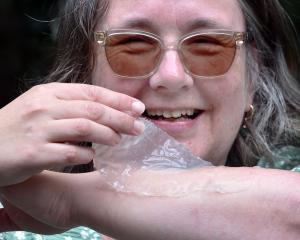
He is a gastroenterologist and researcher, who heads the department of medicine at the university’s Dunedin School of Medicine.
Prof Schultz was commenting on a hard-hitting and comprehensive study on "Reducing the Growing Burden of Inflammatory Bowel Disease in New Zealand", which was released at a function in Wellington this week.
The "fantastic" study was organised by the Crohn’s & Colitis New Zealand Charitable Trust (CCNZ).
The study showed New Zealand had one of the highest rates of Inflammatory Bowel Disease (IBD) in the world and it was growing at an alarming rate.
Other findings:
• Crohn’s disease and ulcerative colitis (known collectively as IBD) are serious, debilitating, lifelong autoimmune diseases.
• Onset is typically early adulthood, about 20% of those affected are children.
• IBD is unpredictable in disease course and severity, symptoms including intense abdominal pain, diarrhoea, rectal bleeding and fatigue.
• IBD is treatable, but currently has no cure; an estimated 20,792 New Zealanders are affected, and it costs the country about $245million a year.
Prof Schultz said Dunedin and Otago already had about 900 patients with IBD, the condition was becoming more prevalent, and more overall resources were needed at a national level.
Patients were disadvantaged in some parts of the country where there was no gastronenterologist, or specialists were available only part time.
He agreed with the study that IBD was "a disease of growing national importance" and a "significant change of thinking" was needed on how it was prioritised and treated.
The study and its foreword focused on challenges posed by this "difficult, invisible condition", and said there was a "patchy" standard of care in different parts of the country and "inequitable" access to health care.












